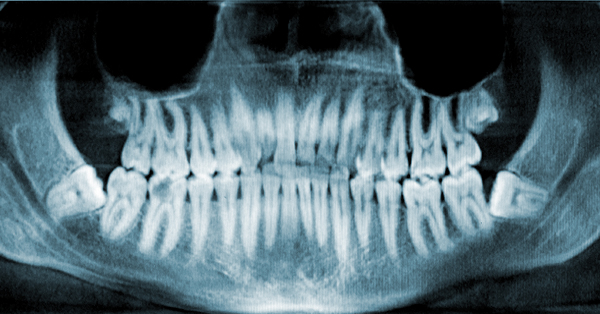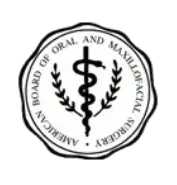Impacted Teeth: What You Need to Know for Successful Removal and Recovery
Impacted teeth are pretty common, and happen with a tooth that doesn't grow out, or erupt, naturally continues growing under the gum instead. While the most common impacted teeth are wisdom teeth, other teeth can be blocked from erupting properly as well.
If you have an impacted tooth, your dentist will recommend that you see a specialist for removal or assisted eruption. You'll need to consult an experienced oral surgeon to ensure the success of the procedure and full, quick recovery. Here are a few things you need to know about treating impacted teeth.
Impacted Teeth: How Common Are They?
Studies show that up to 35% of people experience an impacted tooth, with wisdom teeth being the most common by far. Usually, these teeth don't fully emerge due to a lack of space in the jaw or because they grow in at the wrong angle. In many cases, impacted teeth don't cause any symptoms for some time. Your dentist is likely to discover the problem during a routine x-ray.
Besides wisdom teeth, other teeth can be impacted as well. The second most common impacted teeth are maxillary (upper jaw) canines. About 2% of the population needs surgery to uncover these teeth.
Symptoms of Impacted Teeth: Can You Feel Them?
While many people don't notice any symptoms for quite a while, once the impacted tooth starts causing problems, you could experience:
- Swollen or red gums
- Tender and bleeding gums
- Bad breath
- A bad taste in your mouth
- Problems opening your mouth
- Jaw pain when biting and chewing
- Swollen lymph nodes in your neck
If the impacted tooth is erupting at an angle, it can also damage the nearby tooth, causing pain and inflammation.
An impacted wisdom tooth doesn't affect your overall quality of life until it starts causing problems. Some people live with impacted wisdom teeth for decades without experiencing any discomfort.
If you have impacted or partially impacted maxillary canines, you may want to treat them to restore the aesthetic appeal of your mouth. Treating them requires a comprehensive approach by your dentist, oral surgeon, and orthodontist.
Impacted Wisdom Teeth Complications: Do You Need Treatment?
Besides physical discomfort, impacted and partially impacted wisdom teeth can cause a variety of problems if left untreated.
- Pericoronitis - This is an inflammation of the gum tissue that surrounds the impacted tooth. Besides discomfort and a bad taste in your mouth, this condition can develop into more severe and painful symptoms.
- Damage to nearby teeth - If an impacted wisdom tooth grows in at a wrong angle, it can push against the second molar. This could lead to damage or infection. Extensive pressure could also cause teeth crowding, which in turn would require orthodontic treatment.
- Cysts - Wisdom teeth develop in a sac inside the jawbone. If a tooth doesn't erupt, the sac can fill with fluid, which could result in a cyst. In rare cases, a benign tumor can develop. To deal with the problem, a surgeon may need to remove bone and tissue.
- Caries - Partially impacted teeth are more likely to develop caries-or cavities-than fully erupted teeth. This is because tooth decay is more likely in areas of the mouth that are harder to clean.
All the above complications can be avoided with timely discovery and treatment of impacted teeth.
Treatments for Impacted Teeth
If your dentist discovers an impacted tooth during a routine x-ray, he or she will assess the severity and impact of the situation and either recommend waiting and monitoring the tooth, or seeing an oral surgeon whose treatments can include:
Surgical Removal
When an impacted wisdom tooth starts causing problems, you need to consult an oral surgeon. Surgical removal or extraction is a highly recommended solution for the problem of impacted wisdom teeth - for complicated extractions and for patient comfort, the procedure is usually done under general anesthesia - which means you can be asleep during the procedure.
Healing from an impacted tooth depends not only on the position of the tooth, but also on the age of the patient. As we age, our teeth ossify, or become, set into the jawbone, causing a longer healing time from an extraction procedure. Patients under the age of twenty-five usually heal more quickly from an extraction procedure as their teeth are not yet ossified. Keep in mind that everyone heals at a different pace, but typical healing times is 3-5 days of resting at home post-procedure. Pain management prescriptions may also be given depending on need and the patient's medical profile.
Assisted Eruption
If it's your maxillary canines that are impacted, the treatment usually requires a coordinated effort between your oral surgeon and orthodontist:
- An oral surgeon cuts the gum to push it back and expose the impacted tooth. In some cases, the surgeon will also remove some of the bone surrounding the tooth's crown.
- An orthodontist attaches brackets and a chain to help move the tooth into its natural position.
The surgery is done under general or local anesthesia on an outpatient basis.
Working with an Experienced Oral Surgeon
If you think you have an impacted tooth, contact your dentist as soon as possible for a checkup and x-ray. Even if the tooth isn't causing any discomfort, it needs regular monitoring.
If your dentist recommends surgical removal, you'll need to consult an experienced oral surgeon. While common, both these procedures require extensive expertise in order to avoid complications and speed up the recovery process.
Contact us today for more information about surgical extraction or assisted eruption of impacted teeth.






5 Stars
based on 48 reviews
5 Stars
based on 15 reviews
5 Stars
based on 11 ratings